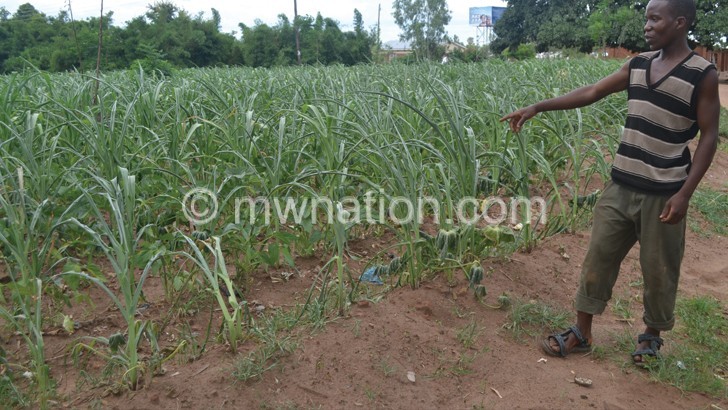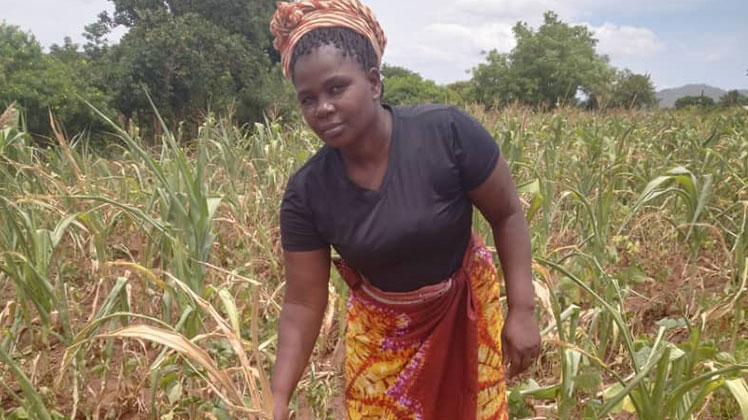Rising temperatures push millions into poverty, hunger
Millions of people in Africa will suffer from poverty and hunger due to rising temperatures, unless governments take swift action.
Climate change has set the planet on fire with millions already feeling the impacts.

A report detailing progress and pathways to limiting global warming to 1.5 degrees Celsius released by the Intergovernmental Panel on Climate Change (IPCC) shows devastating effects from climate on Africa.
“In sub-Saharan Africa 1.5 degrees warming by the 2030s could lead to about 40 percent of present maize cropping areas being no longer suitable for current cultivars, and significant negative impacts on sorghum suitability are projected. Under warming of less than 2 degrees by the 2050s, total crop production could be reduced by 10percent.
“At 2 degrees of warming heat extremes never experienced before could affect 15 percent of sub-Saharan Africa’s land area in the hot season, causing deaths and threatening farmers’ ability to grow crops,” according to the report.
It further states of mounting evidence that higher temperatures linked to climate change have worsened drought and humanitarian disaster in East Africa, including last year’s drought which left over 13 million people dangerously hungry.
“Even at 1.5 degrees of warming, climate impacts in West Africa would be devastating. Wheat yields could fall by up to 25 percent, and at 1.5 degrees Lagos in Nigeria could become a newly heat stressed city like Delhi in India,” it adds.
Already, natural disasters such as droughts and floods have been thwarting development in the continent, with fluctuations in agricultural production due to climate variations along with inefficient agricultural systems causing food insecurity, one of the most obvious indicators of poverty. The 2016 El Niño phenomenon, which was super charged by the effects of climate change, crippled rain-fed agricultural production and left over 40 million people foods insecure in Africa.
Experts believe without urgent action to reduce global emissions, the occurrence of climate shocks and stresses in the Africa region are expected to get much worse.
Responding to the report, Pan Africa Director of Oxfam International, Apollos Nwafor, something needs to be done in order to save many lives on the continent.
“Climate change has set our planet on fire, millions are already feeling the impacts, and the IPCC just showed that things can get much worse. Settling for 2 degrees would be a death sentence for people in many parts of Africa. The faster governments embrace the renewable energy revolution and move to protect communities at risk, the more
lives and livelihoods that will be spared.
“A hotter Africa is a hungrier Africa. Today at only 1.1 degrees of warming globally, crops and livestock across the region are being hit and hunger is rising, with poor small-scale women farmers, living in rural areas suffering the most. It only gets worse from here,” he is quoted in statement as saying.
He made a special appeal to the leading global economies to do more. “To do nothing more and simply follow the commitments made in the Paris Agreement condemns the world to 3 degrees of warming. The damage to our planet and humanity would be exponentially worse and irreparable.
“None of this is inevitable. What gives us hope is that some of the poorest and lowest emitting countries are now leading the climate fight. We’ve moved from an era of ‘you first’ to ‘follow me’ – it’s time for the rich world to do just that,” said Nwafor.
He added: “Oxfam calls for increased, responsible and accountable climate finance from rich countries that supports small-scale farmers, especially women to realize their right to food security and climate justice.
“While time is short, there is still a chance of keeping to 1.5 degrees of warming. We must reject any false solution like Large Scale Land Based Investments that means kicking small-scale farmers off their land to make way for carbon farming and focus instead on stopping our use of fossil fuels, starting with an end to building new
coal power stations worldwide.”
In Asia, India in particular, the situation is also worrisome with millions of people in the world’s second populous nation at risk of facing dire consequences from climate change.
“Even at a little over 1.0°C warming, India is being battered by the worst climate extremes – it is clear that the situation at 1.5 degrees is going to worsen,” comments a New Delhi based Think Tank, Centre for Science and Environment. Considering the grim warning of the IPCC Report, CSE is appealing to the world to focus exclusively on limiting warming to 1.5 instead of 2 degrees, which is the upper limit of the temperature goal mentioned
under the Paris Agreement.
“The report makes it clear that the impact of 1.5 degrees warming is greater than what was anticipated earlier. Accordingly, the world would witness greater sea level rise, increased precipitation and higher frequency of droughts and floods, hotter days and heat waves, more intense tropical cyclones, and increased ocean acidification and salinity. Countries like India, with large populations dependent on the agricultural and fishery sectors, would be highly impacted,” says deputy CSE’s director general and head of its climate change unit, Chandra Bhushan.
Adds Bhushan: “While a 1.5 degrees rise in global temperatures will be precarious, a 2 degrees rise would be catastrophic. The report points out that the risk transition is very high and that the effects at 2 degrees will be more devastating than what IPCC’s Fifth Assessment Report had indicated.
“Coastal nations and agricultural economies like India would be the worst affected. Decline in crop yields, unprecedented climate extremes and increased susceptibility could push poverty by several million by 2050. A warmer world will devastate economies and ecosystems and push hundreds of millions of people back into poverty.”
The IPCC is the biggest scientific body feeding climate science to policy-makers.





